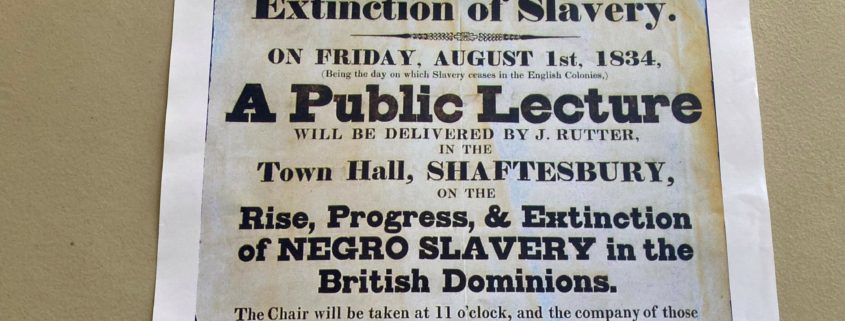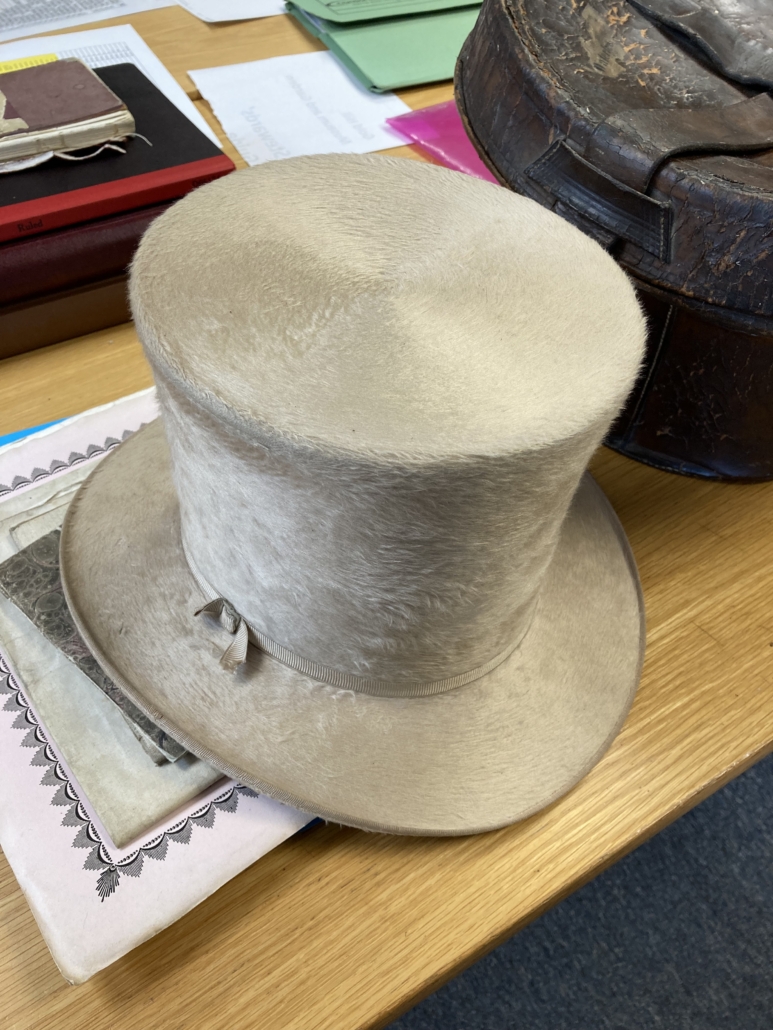Human Rights Campaigner John Rutter Welcomes The End of Slavery
Slavery was officially abolished in the British Empire on 01 August 1834. To mark this milestone, John Rutter addressed a public meeting in Shaftesbury Town Hall at 11.00a.m. On Saturday 07 August 2021 at 12.00 noon the Lord Lieutenant of Dorset unveiled a Blue Plaque outside the premises of HSBC to commemorate the life and achievements of this remarkable Shastonian.
Abolition was not all that it seemed. Nominally freed slaves were compulsorily indentured to their former owners in an apprenticeship system scheduled to cease on 01 August 1840. This was deeply unpopular with the ‘apprentices’, and John Rutter’s biographer notes that ‘he is recorded as a speaker in Mere in March 1838 when he explained the “oppressive and deceptive operation of the Apprenticeship System” in the West Indies.’ (John Stuttard, ‘The Turbulent Quaker of Shaftesbury’, p.112) Reparations were paid, but to the slave owners, totalling £20 million at 1830’s values. William Beckford of Fonthill Abbey fame, with whom Rutter had collaborated in 1822 to publish the superb ‘Delineations of Fonthill & Its Abbey’, received £12,803-2s-10d in compensation for 660 slave workers on four sugar plantations in Jamaica. In all, about 40,000 claims were paid, some to owners of as few as one slave.
A temporary exhibition of artefacts connected with John Rutter can now be viewed at Gold Hill Museum. The cream top hat brought back from Paris in August 1849 after an International Peace Congress has been very kindly loaned by Simon Rutter.




